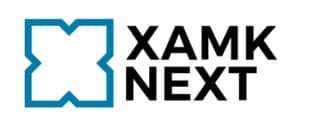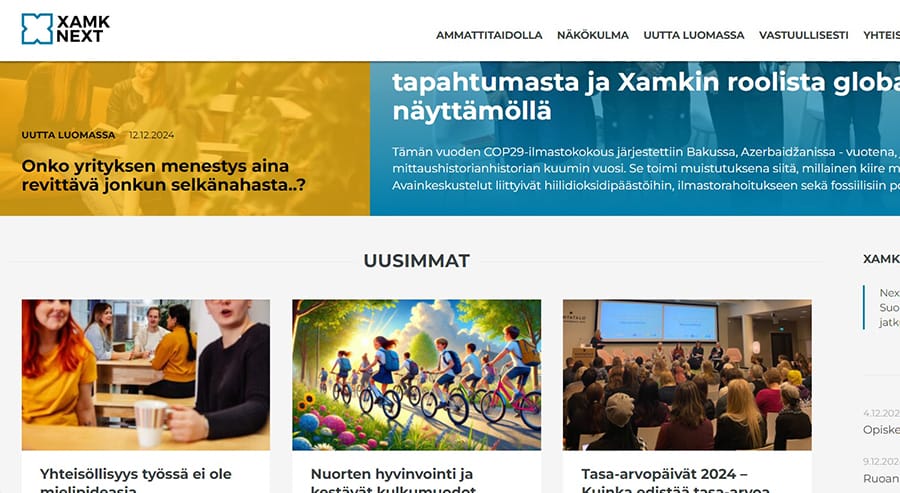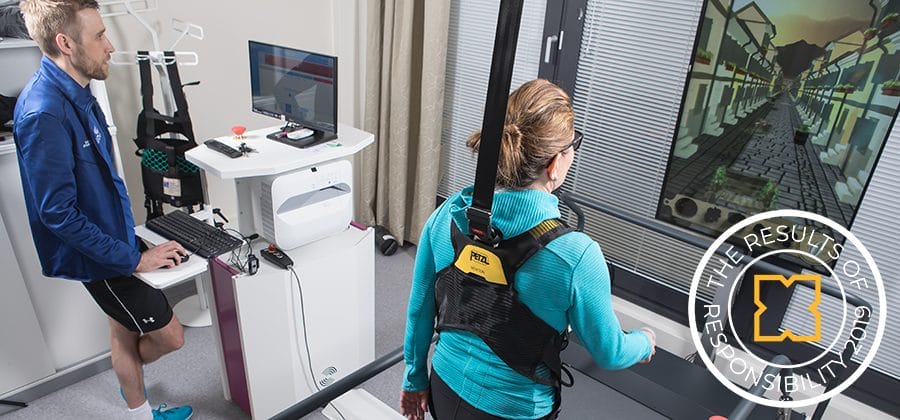Digitalisation is present in everything we do at Xamk
 200 persons from Xamk participated in the preparation of the digitalisation roadmap in 2019. The result consists of four paths for the Digiroad 2018–2030. These paths are Robotisation, artificial intelligence and algorithmic reasoning; Future-oriented competence; Digital experimenting culture; and Place-independent activity.
200 persons from Xamk participated in the preparation of the digitalisation roadmap in 2019. The result consists of four paths for the Digiroad 2018–2030. These paths are Robotisation, artificial intelligence and algorithmic reasoning; Future-oriented competence; Digital experimenting culture; and Place-independent activity.
We develop our internal operations through the digitalisation of support and administration services. By developing systems and changing our ways of working we aim for more flexible and efficient operations and use of resources. The latest manifestation of the work is the use of software robots by Xamk’s Administrative Services.
Digitalisation and RDI
Xamk is a strong RDI player. Each year, we have about 250 ongoing projects. Approximately 50 of these involve digitalisation for transforming products, services or methods.
In our focus areas, we have national and international cutting-edge expertise that serves the largest Finnish companies and the Finnish export industry. Our four focus areas are Digital economy; Forest, the environment and energy; Sustainable wellbeing; and Logistics, marine technology and transport.
Digitalisation has an important role in each one of the focus areas. Smart solutions are integral for future development. In addition, we coach companies to meet the challenges of digitalisation.
Increased online education
 Digitalisation has transformed the way education is provided. In 2019, we promoted online teaching by arranging digital professional coaching, webinars and workshops and by granting awards. Towards the end of the year, we also introduced the New Learn and Open learning environments.
Digitalisation has transformed the way education is provided. In 2019, we promoted online teaching by arranging digital professional coaching, webinars and workshops and by granting awards. Towards the end of the year, we also introduced the New Learn and Open learning environments.
Xamk has provided blended learning-based education for many years already. Approximately one third of the degree programmes are available in a blended learning format.
In 2019, we changed three programmes to be provided completely online. Of all the education provided by Xamk in 2019, as much as 24 per cent was provided online, compared with 20 per cent in 2018.
The expanding range of online studies gives students more opportunities for choice and increases flexibility. Student satisfaction with online studies provided by Xamk also improved from the previous year.
Digitalisation also plays a role in the offering of continuous learning-based education. In 2019, we arranged the Ohjelmoinnista ammatti training in Mikkeli and Kotka to train professional programmers for the needs of the software industry. The training was funded by the Ministry of Education and Culture. In addition, the Ministry funded the more extensive AMKoodari programmer training, in which Xamk is one of the participants. The three-year project was launched in January 2019.
Digitalisation changes the content of education and library services
Digitalisation also transforms the content of education. The revision of curricula in 2019 particularly focused on the development of digitalisation and the opportunities it provides with respect to the content and implementation of education.
For instance, we started planning robotics education at Xamk. In addition, we engaged in broad co-operation applying ideas of experimental culture to develop the Wellbeing Management training, which utilises the Active Life Lab wellbeing laboratory and combines expertise in the fields of wellbeing, business administration and information technology. The training also attracted considerable interest from abroad.
At Xamk, the use of digital technology in library services increased the use of e-books by approximately 40 per cent compared with the previous year. Library services invested in the use of digital technology and the promotion of customer self-service in many ways. In 2019, library services introduced the mobile user interface and a new library system that is based on open source code.




